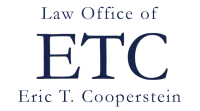 A few months ago, I posted a warning to lawyers about emailing clients at work. My concern was based in large part on a NJ district court decision that found an employee had waived the attorney-client privilege for emails that she sent to her attorney while using her work computer. Although the emails had been sent using a Yahoo! account, the employer found images of the emails on the employee’s hard drive.
A few months ago, I posted a warning to lawyers about emailing clients at work. My concern was based in large part on a NJ district court decision that found an employee had waived the attorney-client privilege for emails that she sent to her attorney while using her work computer. Although the emails had been sent using a Yahoo! account, the employer found images of the emails on the employee’s hard drive.
Well, the New Jersey Court of Appeals has quickly reversed the decision. Although the opinion starts off as a criticism of the district court for not properly evaluating the factual dispute over whether the employer had properly adopted its computer usage policy, the appellate court went on to proclaim the preeminence of the attorney-client privilege over employers’ computer usage policies.
The opinion contains quite a few quotables regarding the extent of an employee’s privacy interest in the information on their work computer. For example:
“A computer in this setting constitutes little more than a file cabinet for personal communications. Property rights are no less offended when an employer examines documents stored on a computer as when an employer rifles through a folder containing an employee’s private papers or reaches in and examines the contents of an employee’s pockets.â€� The court also compares reviewing an employee’s emails with “the highly impermissible conduct of electronically eavesdropping on a conversation between plaintiff and her attorney while she was on a lunch break . . . .
“We thus reject the philosophy buttressing the trial judge’s ruling that, because the employer buys the employee’s energies and talents during a certain portion of each workday, anything that the employee does during those hours becomes company property.â€�
Privilege and privacy trump the employer’s computer usage policy, concludes the NJ Court of Appeals.
But the Court was not quite done with the issue. Next it turned to the employer’s attorneys, who viewed images of the allegedly privileged emails that had been stored on the hard drive of the employee’s computer. The Court invoked a relatively new Rule of Professional Conduct, Rule 4.4(b), which reads (in NJ and many other states) “[a] lawyer who receives a document and has reasonable cause to believe that the document was inadvertently sent shall not read the document or, if he or she has begun to do so, shall stop reading the document, promptly notify the sender, and return the document to the sender.” The Court says the defense attorneys violated this rule when they failed to notify the employee’s lawyers that they had found images of the emails on the hard drive.
The Court is kind of stretching here to tag the attorneys for conduct that offends the spirit, but perhaps not the letter, of the rule. The defense attorneys viewed the hard drive images of the emails after the plaintiff filed her lawsuit. Seems like a stretch to call those images “inadvertently sent� documents. The defense attorneys’ conduct seems more akin to searching for metadata in documents, the ethics of which are still in dispute (and about which NJ has not taken a particular position). A prudent lawyer, however, reviewing paper documents clean out of a fired employee’s office, should probably not read letters that appear on their face to have been sent from the employee to his or her attorney. The NJ Court apparently applies the same reasoning to electronic information.
In NJ at least, the pendulum has swung back in favor of protecting the attorney-client privilege in emails sent through a work computer. Until, perhaps, the NJ Supreme Court takes its swipe at the issue.
Emailing clients at work: privilege trumps employer policy is a post from the law firm marketing blog, Lawyerist.com
Related posts:
- Emailing a Client at Work May Invalidate the Attorney-Client Privilege
- Separate Business from Personal on Your Work Computer
- Prevent Clients from Waiving the Attorney-Client Privilege

